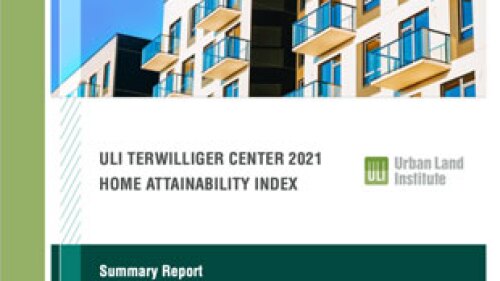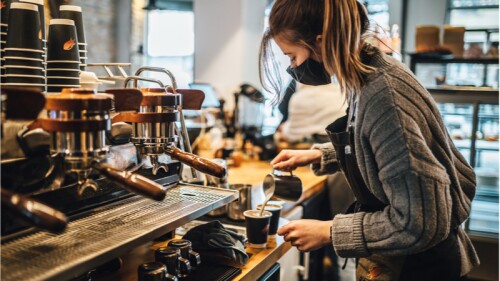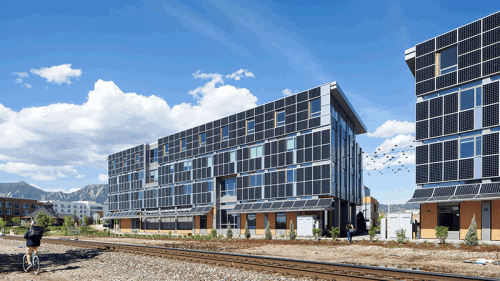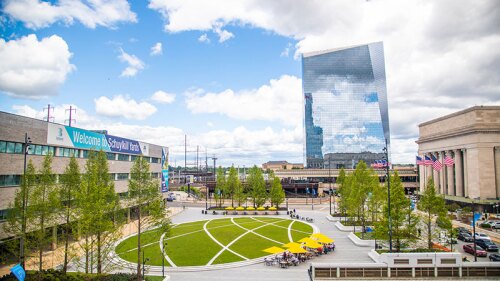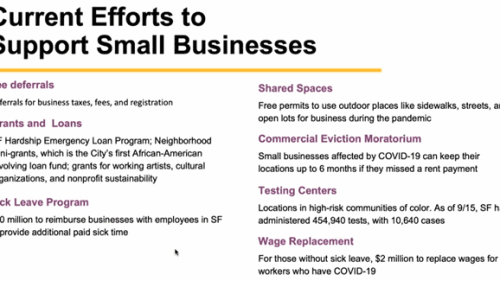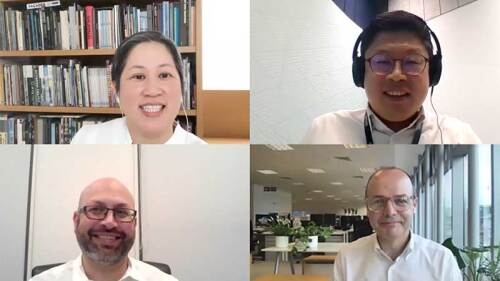COVID-19: Industry Insights
Learn how the pandemic shaped real estate practices, influenced planning, and spurred innovation in property and community design
The pandemic has accelerated the use of contactless drones for comprehensive applications in real estate development.
COVID-19 has exacerbated a crisis of middle-income households being unable to find attainable homes, with frontline workers faring particularly badly, according to a comprehensive data-informed study from the ULI Terwilliger Center for Housing.
A return to the “old normal” before the global coronavirus pandemic is neither possible nor desirable, a panel of retail leaders agreed at “Experience the Experience,” ULI Asia Pacific’s premier retail event of 2021.
ULI MEMBER–ONLY CONTENT: In the closing session of the 2021 ULI Virtual Europe Conference in February, a panel considered the impact that the COVID-19 pandemic would have on cities in both the short term and the longer term.
As tenants prepare to return to their buildings on a more consistent basis, office reconfigurations and fitouts are top of mind. While updating spaces for less density and more social distancing, with more sensors and less recirculated air, owners and tenants have a prime opportunity to optimize their space for sustainability and energy performance, in addition to health and wellness, at the same time.
Confronting COVID-19: The Rising Imperative of Integrating Health and Social Equity into Development
The COVID-19 pandemic and protests for racial justice have spurred the real estate community to more fully factor health and social equity into all aspects of urban planning, design, and development, according to participants in a webinar hosted in mid-November by ULI. The event focused on two new ULI publications, Health and Social Equity in Real Estate: State of the Marketand Health and Social Equity in Real Estate: Examples from the Field.
Despite the office sector’s current bleak outlook, the longer-term outlook is much rosier, speakers said at the ULI Virtual Fall Meeting.
The COVID-19 lockdown imposed by San Francisco in late February devastated the city’s small, independent businesses, and especially its restaurant scene. But creative city policies could help nimble retailers survive, panelists said at the ULI Virtual Fall Meeting session titled “Vibrant Retail Streets in the Age of E-tail and COVID-19: Is It Time for ‘Retail First’ City Policies?”
Office workers across the Asia Pacific region are returning to the office at varying paces, taking into consideration government directives and company policies. Though the permanent impact of remote working remains to be seen, landlords will need to innovate and adapt to a changed environment, said participants in ULI Asia Pacific’s latest FutuRE of Cities and Communities webinar.
The importance of creative placemaking—the process of intentionally integrating arts, culture, and community-engaged design into comprehensive community development—and the role that artists play in that process have been elevated by both the COVID-19 pandemic and social justice protests in the United States, as people seek places to socialize and connect with others outside their homes, according to participants in a recent ULI webinar.
ULI MEMBER–ONLY CONTENT: The global COVID-19 pandemic promises to accelerate the adoption of property technology (proptech), which lies at the intersection of the roughly $230 trillion global property sector and the nearly $3.4 trillion global technology sector, speakers said in early September during the virtual ULI Asia Pacific REimagine conference.
As more commercial properties work to reopen safely during the COVID-19 pandemic, independent healthy building certifications developed in response to the coronavirus are increasingly being sought by building owners, managers, and tenants seeking to assure building users that their spaces are safe to enter and occupy. The leading healthy building certification systems, WELL and Fitwel, have developed new certification modules.


